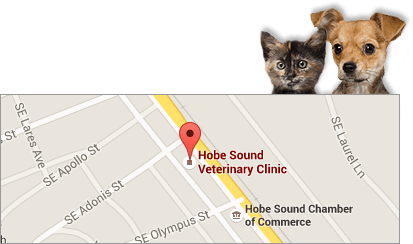Human patients commonly use antibiotics to treat bacterial infections. Did you know that antibiotics are also very commonly prescribed to pets? They’re essential for helping pets with infections make full recoveries! Here’s everything you need to know about antibiotics for pets:
What Do Antibiotics Treat?
Antibiotics kill bacteria—not viruses—in or on the body. Antibiotics will never be prescribed to fight viral infections directly, although antibiotics could be used to treat a pet suffering from a virus if that pet has developed secondary bacterial infections.
How Do Antibiotics Work, Exactly?
There are multiple types of antibiotics, and they work in different ways. Some antibiotics weaken the cell wall of the bacteria until it bursts. Others stop the bacteria from multiplying, and still others interfere with bacteria cells’ capacity to repair themselves.
How Are Antibiotics Administered?
Antibiotics can take several forms. Some are administered orally in pill form to treat internal infections, while others are applied topically. These are usually in cream or ointment form, and are used to treat external infections on the outside of the body. Antibiotics are often prescribed after surgery to prevent infection. If your pet has recently undergone a procedure, you might find our guide on Helping Your Pet Recover From Surgery helpful.
It’s essential to follow the label instructions properly when administering an antibiotic to your pet. Keep in mind that some antibiotics must be given on an empty stomach to prevent the medication from binding with ingredients in your pet’s food. Other antibiotics, though, must be given with meals to improve the rate of absorption. If you’re unsure whether or not your pet’s medicine should be given with food, call your veterinarian right away. Also, make sure to ask before you split or crush a pill—this could render medicine ineffective, and it could cause serious side effects in some cases.
Always finish the full regimen of antibiotics that has been prescribed to your pet, even if your companion seems to look or feel completely better before all of the pills are gone. Stopping medication before the infection is gone, or lapsing during treatment, can lead to dangerous bacterial resistance. This means that the bacteria harming your pet develops a resistance to the antibiotic, rendering the medication useless!
Is There Any Possibility of Side Effects?
It’s possible for some pets to have adverse reactions to antibiotics, such as vomiting or diarrhea. Let your vet know right away if your pet seems to be reacting poorly to their medication!
Our Advice on Antibiotics for Pets in 2024
What are the most common types of antibiotics prescribed to pets, and how do they differ in terms of their mechanisms of action and potential side effects?
Common antibiotics prescribed to pets include amoxicillin, cephalexin, and enrofloxacin. Amoxicillin is a broad-spectrum antibiotic that works by weakening bacterial cell walls, causing them to burst. Cephalexin, also a broad-spectrum antibiotic, disrupts cell wall synthesis, preventing bacteria from reproducing. Enrofloxacin is a fluoroquinolone antibiotic that interferes with bacterial DNA replication, halting growth. Potential side effects vary: amoxicillin may cause gastrointestinal upset, cephalexin can lead to vomiting or diarrhea, and enrofloxacin might result in joint issues in young animals. Always consult a veterinarian for specific guidance and monitoring during antibiotic treatment.
How do veterinarians determine the appropriate dosage and duration of antibiotic treatment for pets?
Veterinarians determine the appropriate dosage and duration of antibiotic treatment for pets based on several factors, including the type and severity of the infection, the specific antibiotic being used, and the pet’s weight, age, and overall health. Diagnostic tests, such as bacterial cultures and sensitivity testing, help identify the most effective antibiotic. The pet’s medical history and any potential for drug interactions are also considered. The dosage is carefully calculated to ensure efficacy while minimizing side effects, and the duration is set to fully eradicate the infection and prevent bacterial resistance. Regular monitoring ensures the treatment’s success and adjusts as needed.
Are there any potential long-term consequences of frequent or prolonged antibiotic use in pets?
Frequent or prolonged antibiotic use in pets can lead to several potential long-term consequences. One major concern is the development of antibiotic-resistant bacteria, which can make future infections more difficult to treat. Additionally, prolonged antibiotic use can disrupt the natural balance of gut flora, leading to gastrointestinal issues such as diarrhea or malabsorption. It may also increase the risk of secondary infections due to weakened immune responses. Monitoring and minimizing antibiotic use, while exploring alternative treatments when appropriate, are essential strategies to mitigate these risks and maintain pet health.
Can antibiotics interact with other medications or supplements that pets may be taking?
Yes, antibiotics can interact with other medications or supplements that pets may be taking. These interactions can affect the efficacy of the antibiotic or the other drugs, potentially leading to adverse effects. For example, certain antibiotics may interact with antacids, reducing their absorption, or with blood thinners, increasing the risk of bleeding. It is crucial to inform the veterinarian of all medications and supplements the pet is currently taking to avoid harmful interactions and ensure a safe and effective treatment plan. Close monitoring and adjustments may be necessary to manage any interactions.
How can pet owners recognize the signs of a potential adverse reaction to antibiotics in their pets?
Pet owners can recognize signs of a potential adverse reaction to antibiotics by monitoring for symptoms such as vomiting, diarrhea, loss of appetite, and lethargy. Other indicators include excessive drooling, rash, or swelling at the site of topical antibiotic application. Behavioral changes, such as increased irritability or withdrawal, may also signal a reaction. If any of these symptoms are observed, contacting a veterinarian immediately is essential to address the issue and adjust the treatment plan as necessary. Prompt action can help prevent more severe complications and ensure the pet’s safety.
Would you like to know more about antibiotics for pets? Call your vet’s office in Hobe Sound, FL today. We offer comprehensive Veterinary Wellness & Pet Vaccinations services to keep your pet healthy and prevent infections that may require antibiotic treatment.




